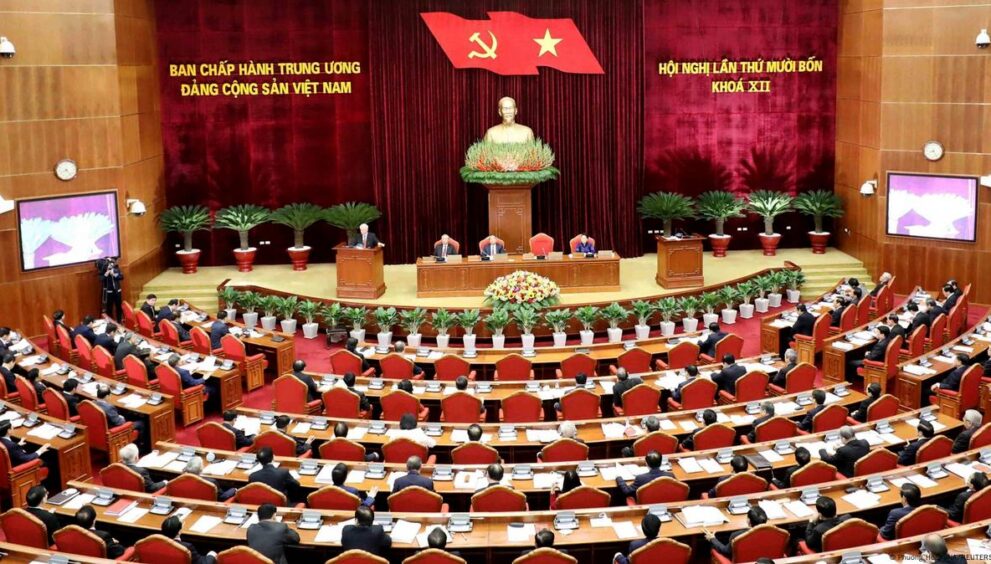Vietnam Approves Major Bureaucratic Reform to Streamline Government Operations
International International NewsPosted by NewAdmin on 2025-02-19 08:46:50 |
Share: Facebook | Twitter | Whatsapp | Linkedin Visits: 49

Vietnam’s National Assembly has approved a major bureaucratic reform plan to streamline government operations, cutting costs and improving efficiency. The plan, which was overwhelmingly approved by over 97% of lawmakers, will reduce the number of government ministries from 18 to 14 starting March 1, 2025. Additionally, it aims to downsize 15-20% of the state apparatus, affecting four agencies and five state television channels.
The restructuring will merge several ministries: the Planning and Investment Ministry will be integrated with the Finance Ministry, the Transport and Construction Ministries will be combined, and the Natural Resources and Environment Ministry will merge with the Agriculture Ministry. Despite concerns over short-term administrative delays, the government has assured that the overhaul will not impact project approvals.
As part of the reform, Vietnam will also appoint two new deputy prime ministers, increasing the number from five to seven. The government emphasizes that the move is not just about budget savings but about enhancing the effectiveness of state operations. General Secretary of the Communist Party, To Lam, stated that the restructuring would lead to a more efficient governance system.
The reform comes amid global post-pandemic cost-cutting measures, similar to those introduced by Argentina’s President Javier Milei and former U.S. President Donald Trump. Vietnam’s state media previously reported that the restructuring would affect around 100,000 state officials. Deputy Prime Minister Nguyen Hoa Binh stressed that poor-performing employees must be removed and that state agencies should not serve as safe havens for incompetent officials.
The move has been largely welcomed by investors, diplomats, and officials, as Vietnam remains a key regional industrial hub dependent on foreign investment. While there may be some disruptions in the short term, the reforms are expected to create a leaner and more efficient government in the long run.
Search
Categories
Recent News
- Chennai's Development Under the Lens: Minister's Inspection Tour
- Bank Fraud Unveiled: PNB Manager's Golden Scheme Exposed
- Assam CM Vows Legal Action: Land Grab Claims Refuted
- India-Canada Relations Warm Up: A Strategic Alliance in the Making?
- Indian Cricket Prodigy Shines in U19 World Cup Semi-Final
- The Fine Line Between Acclaim and Scrutiny in Football Management
- Prostate Cancer Awareness: A Hospital's Initiative for Early Detection
- India's Data Revolution: AI Infrastructure and Job Creation
Popular News
- Navigating IPO Market Dynamics Amid Volatility and Regulatory Changes
- Massive Worldwide Microsoft Outage Disrupts Multiple Sectors
- Panjapur Bus Stand to Reshape TNSTC Routes
- తెలుగుదేశం పార్టీ - పేదరికాన్ని నిర్మూలించడంలో వాగ్దానం
- Universities Embrace Remote Learning Technologies Amidst Ongoing Pandemic